Do you have a paradise fish that has suddenly become shy and spend most of their time in the corners of the aquarium? Such behavior is always worrying to fishkeepers because it is usually an indication that something is wrong. Paradise fish care is a topic worth discussing, as well as paradise fish tank size. In this article, I will discuss what makes paradise fish hide and what should be done to ensure a better life for them.
Content Table
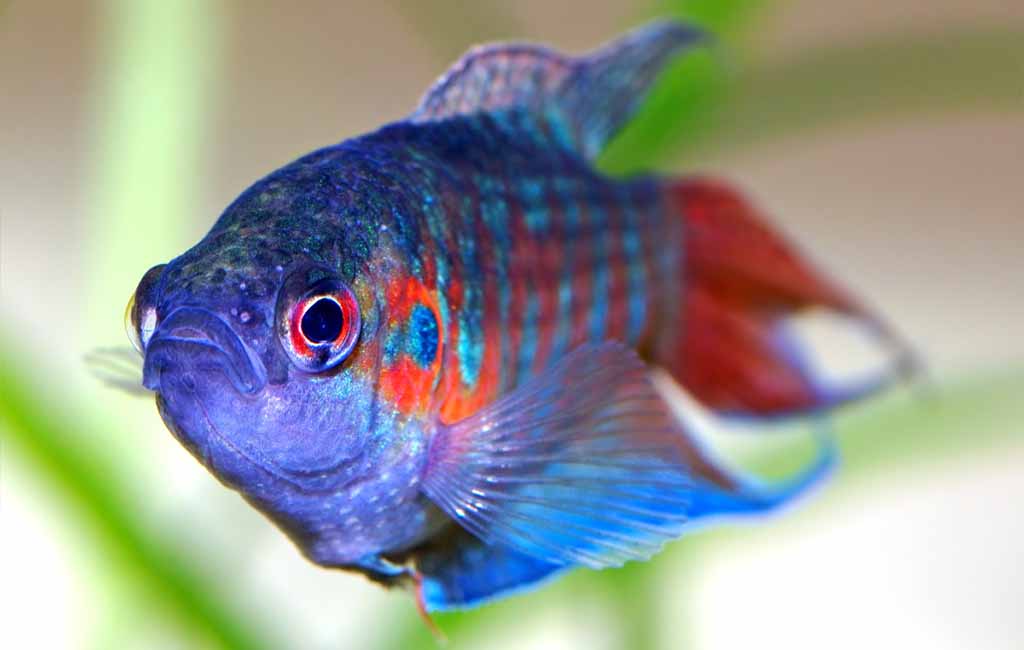
Paradise fish
Paradise Fish Stay in the Corner of the Tank
Paradise fish staying in the corner of their tank can be due to several reasons:
Stress and Hiding Behavior
- New Tank Environment: Paradise fish live in their territory and may become stressed in the new environment of a newly set up tank. There are chances that they remain in a corner until they have warmed up.
- Dominant Tankmates: If the tank is with other species of fish, especially the ones that are more dominant or competitive, then the paradise fish will most of the time be found hugging the edges of the tank.
- Poor Water Quality: Stress indicating that most fish will hide is brought about by ammonia, nitrite, or nitrate. Water changes introducing precise water changes and testing will create good water quality.
Inadequate Hiding Places
Lack of Decorations: As with most fish, the paradise fish require some form of shelter or blind so that the fish can feel safe. You should provide options for them to interact with such as plants, rocks, and driftwood that they can also seek to hide under.
Health Issues
Parasites or Diseases: If a paradise fish is sick, then it is likely to be weak and will want to itself in a quiet area. Watch for symptoms of powerlessness, loss of appetite, or odd swimming.
Natural Behavior
Predatory Instincts: Like most fish species, paradise fish are territorial and will naturally shoal at the aquarium’s corners to prey on their prey.
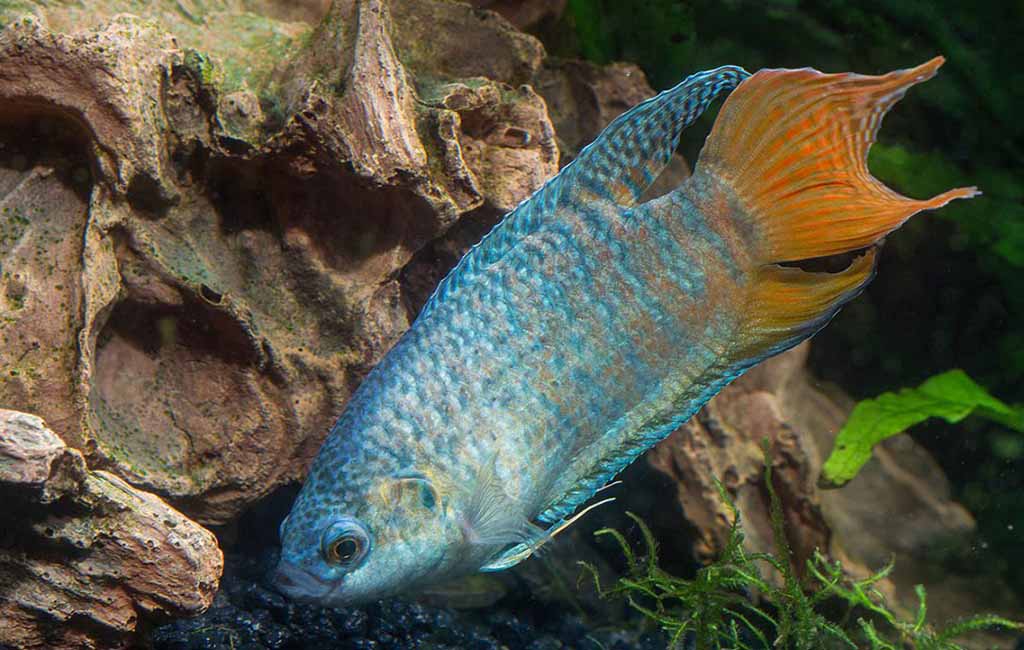
Paradise fish stay in the corner of the tank
Paradise Fish Laying On the Bottom
Paradise fish can lie at the bottom for numerous reasons including relaxation, stress, or possibly sickness. There may also be a reason that this species needs much cooler water. The upper layer has warm water and low oxygen content, and he may have problems with that.
How to Take Care
- Check Water Quality: Ensure the water is clean, properly filtered, and has appropriate ammonia, nitrite, and nitrate levels.
- Provide Adequate Space: Avoid overcrowding the tank to reduce stress and territorial disputes.
- Maintain Optimal Temperature: Aim for a water temperature between 72-78°F (22-26°C). Consider using a fan or chiller to cool the water if necessary.
- Offer Hiding Spots: Provide plenty of hiding places like plants, rocks, or driftwood to create a sense of security.
Take Care of Paradise Fish
If your paradise fish is acting strangely or seems to be ill, you need to have a quick intervention to overcome that problem. Below, you will find some useful suggestions.
Observe for Symptoms
- Lethargy: Do you notice your fish moving less, swimming to the bottom of the tank more often than usual?
- Loss of Appetite: Is it not wanting to eat or eat less than usual?
- Color Changes: Is it starting to look old, or do you suspect that it has faded colors?
- Fins: Are its fins clamped or frayed?
- Eyes: Does it have clouded or protruding eyes?
Check Water Parameters
- Test Water Quality: Use a water testing kit to measure parameters like pH, ammonia, nitrite, nitrate, and hardness. Ensure they’re within the optimal range for paradise fish (pH 6.0-8.0, ammonia 0 ppm, nitrite 0 ppm, nitrate below 20 ppm).
- Perform a Water Change: If any parameters are off, perform a partial water change (25-50%) to replace contaminated water with fresh, dechlorinated water.
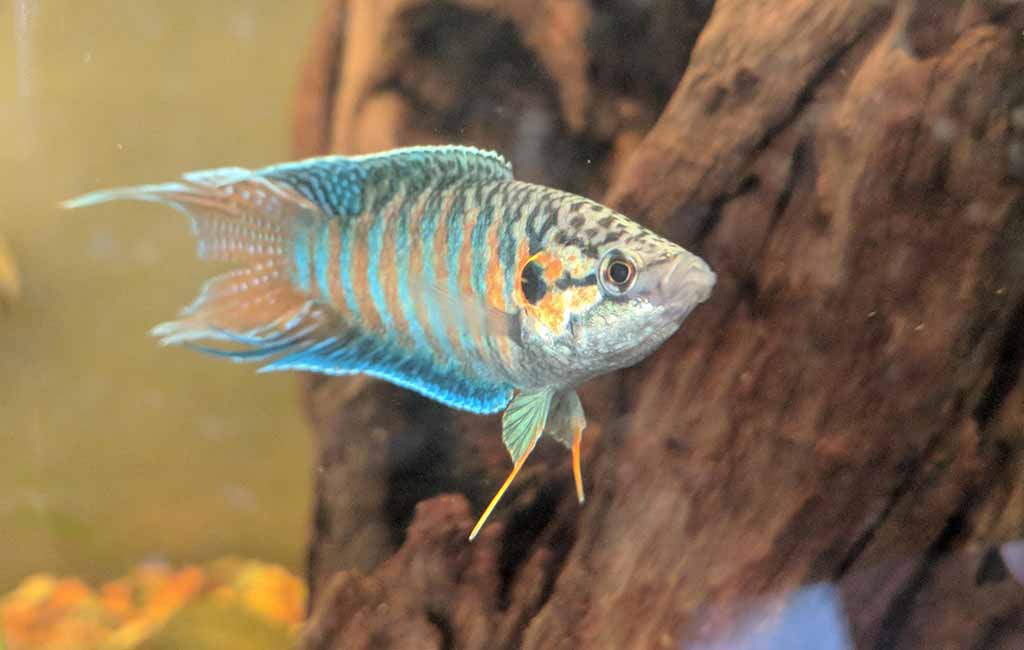
Paradise fish tank size
Adjust Tank Conditions
- Temperature: Require the water temperature to be maintained in the range of 72F to 78F (22C to 26C).
- Filtration: Find out if your filter is working optimally and is not blocked.
- Aeration: The water needs to be oxygenated sufficiently.
- Decor: Minimize or eliminate unnecessary items, such as pointed ornaments and other accessories that may be useless to your fish.
Diet and Nutrition
- Variety: Feeding should be done with a wide table of quality flake, pellet, or frozen food.
- Live Food: You might think about including live or frozen food such as brine shrimp or blood worms in the diet.
- Avoid Overfeeding: Basically, overfeeding can lead to some negative implications for the water condition.
Quarantine
Isolate: If the fish appears sick, move it to a QT tank so that it cannot infect other fish with disease.
Minimum Tank Size for Paradise Fish
A minimum tank size of 10 gallons is recommended for a single paradise fish. However, for a pair or small group, a 20-gallon tank is more suitable. This larger size provides ample space for them to swim and interact comfortably.
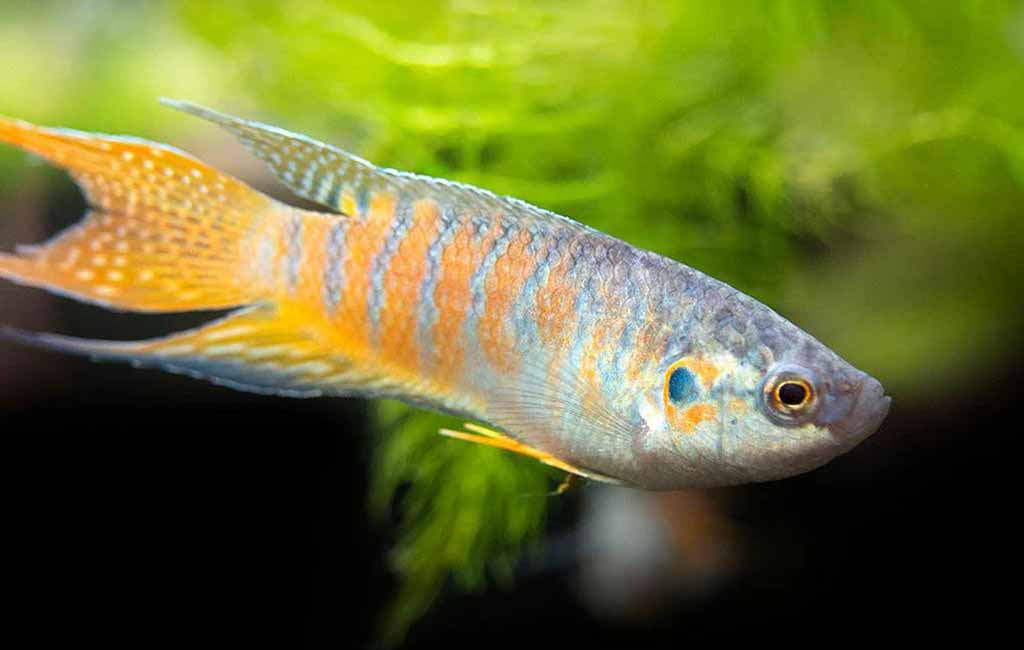
Paradise fish care
Paradise Fish Tank Mates
Paradise fish are generally peaceful and can thus be put together with other compatible fish. Here are some suitable tank mates for the paradise fish:
- Other peaceful fish: Some fish that can be kept as companions are gouramis, cherry barbs or tiger barbs, rasboras, and small tetras.
- Corydoras catfish: These fish live at the bottom, are non-aggressive, and will feed on any leftovers.
- Shrimp: However, paradise fish can do well with cherry shrimp or ghost shrimp, which will give the tank a lively look.
Closing Remarks
Therefore, paradise fish that occupy a corner of their tank should be a signal of stress, low water quality, or illness. To ensure the best environment for them as well as water quality, to make enough space, and the presence of shelters. Moreover, the observation of behavioral changes can denote health problems, and feeding them the right portion can create the perfect environment for them.
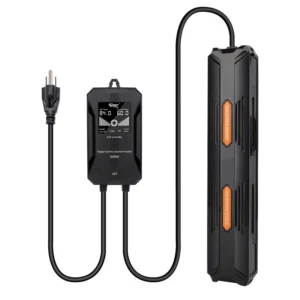
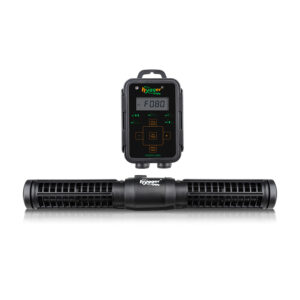
Leave a comment